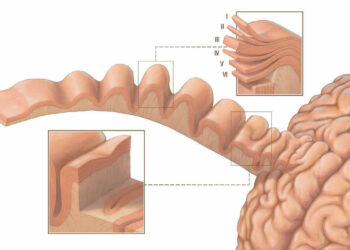Back Pain Among Students: University of Plymouth Pioneers Natural and Virtual Solutions for Global Relief
Plymouth, United Kingdom – June 5, 2025 —
As back pain continues to afflict millions globally, the University of Plymouth is at the forefront of groundbreaking research and innovative interventions, particularly among young adults and students. Recent studies reveal that a significant percentage of university students—especially those in physically demanding disciplines—are affected by back pain, underscoring the urgent need for both preventive and therapeutic strategies.
High Prevalence Among Students
A study published in the Journal of Pain found that back pain is alarmingly common among healthcare students. Physiotherapy students reported a lifetime prevalence of 62.3%, while dietetics students recorded an even higher rate of 65.1%. The repetitive physical strain, long hours of study, and stress factors associated with student life contribute significantly to these numbers.
Nature as a Natural Healer
In response to these findings, the University of Plymouth, in collaboration with the University of Exeter, is championing an unconventional yet deeply human approach: nature immersion. The research suggests that spending time in natural environments—such as forests, beaches, and parks—can significantly reduce symptoms of chronic lower back pain. Participants in these studies reported lower stress, improved mental well-being, and a decrease in pain-related isolation.
Virtual Reality for Those Without Access to Nature
For individuals living in urban environments or with limited mobility, the University of Plymouth’s Brain Research & Imaging Centre (BRIC) is developing Virtual Reality (VR) environments that replicate calming, natural settings. These VR experiences are being tested for their ability to modulate pain perception and help users manage chronic conditions through immersive, non-invasive techniques.The VR-based therapy aims to provide an accessible alternative for those who cannot regularly engage with the outdoors. It combines the principles of psychological distraction, environmental therapy, and digital accessibility—offering hope for pain sufferers worldwide.
Local Data Reflects Global Patterns
According to Versus Arthritis, approximately 17.4% of Plymouth’s population experiences some form of back pain, with 10.8% reporting severe, chronic symptoms. Alarmingly, 22.1% of those affected are under the age of 35, reflecting a broader international trend where musculoskeletal issues are no longer confined to older populations.This mirrors findings from other urban university settings across Europe, Asia, and North America, where sedentary lifestyles, poor posture, and mental stress are taking a toll on the younger generation.
University Recommendations for Prevention and Management
In light of these findings, the University of Plymouth offers the following recommendations to students and young professionals worldwide:
Engage in Regular Exercise: Core-strengthening routines and moderate physical activity can prevent muscle fatigue and spinal strain.
Avoid Prolonged Sitting: Break up long study or work sessions with stretching or light walking every 30–45 minutes.
Embrace Nature: Spending even 20 minutes in green environments can dramatically improve both back and mental health.
Utilize VR Nature Therapy: Virtual natural environments are emerging as effective alternatives for those without physical access to the outdoors.
Seek Early Intervention: Students are encouraged to consult university health services or physical therapy professionals when experiencing persistent discomfort.
A Global Model for Student Health
With its pioneering combination of physical therapy research, nature-based recovery models, and virtual reality technology, the University of Plymouth is setting a global benchmark for back pain management. Its holistic and accessible approach offers promising results not only for students but also for millions suffering from chronic back pain worldwide.As the burden of musculoskeletal disorders grows globally, especially among the youth, initiatives like Plymouth’s represent a beacon of innovation and empathy—bridging science and nature in the service of human well-being.
For more information on the University of Plymouth’s back pain research and VR initiatives, visit www.plymouth.ac.uk.





































